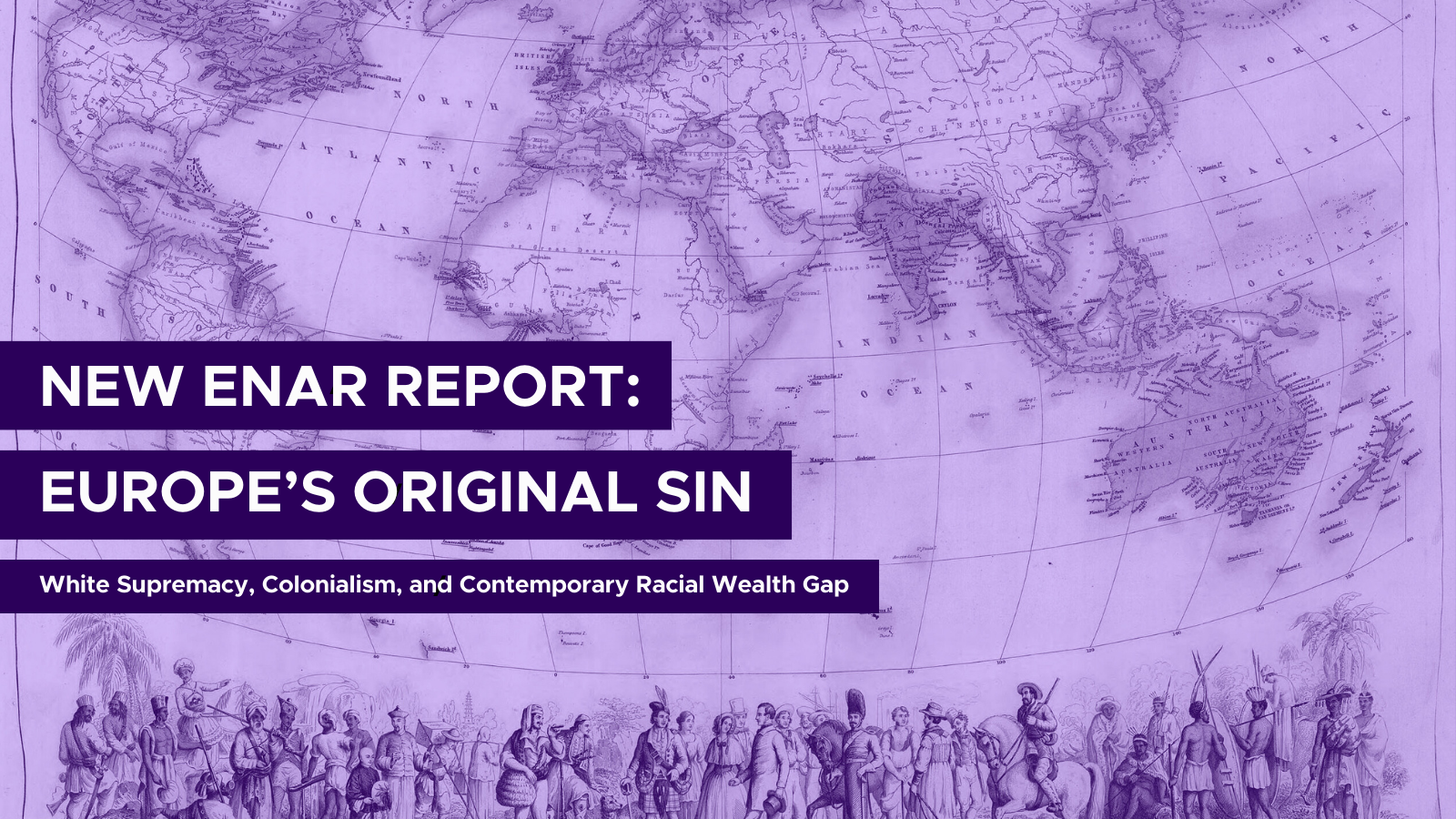
NEW ENAR REPORT: Europe’s Original Sin: White Supremacy, Colonialism, and Contemporary Racial Wealth Gap
In order to understand the present, we must also understand the past. The European Network Against Racism (ENAR) is set to unveil a groundbreaking report that sheds light on Europe’s hidden history of structural racism and its enduring impact on contemporary society.
The report “Europe’s Original Sin: White Supremacy, Colonialism, and Contemporary Racial Wealth Gap” delves into the entrenched system of structural racism, highlighting how it has historically marginalised racialised minorities for economic gain. It examines how European states like Belgium, Germany, France, Portugal, The Netherlands, and Spain built their wealth on stolen resources through slavery and colonialism, perpetuating white supremacy. Despite differences in their histories, these nations shared a common thread of using legislation to justify exploitation and dehumanisation.
Colonial policies and practices, although ostensibly dismantled with the rise of independence movements, have morphed into neo-colonialism, perpetuating a global power hierarchy. While there’s a growing awareness of colonial atrocities, the regulatory framework enabling them remains poorly documented, often buried in national archives. This lack of transparency hampers efforts to fully comprehend and address the ongoing impact of colonialism on racialised communities.
The legacy of structural racism persists in modern Europe, manifesting in various forms of discrimination across education, employment, social services, and finance. Racialised minorities face systemic barriers that limit their economic participation and perpetuate cycles of poverty. Moreover, structural racism extends to the investment sector, where racialised-led projects often struggle to secure funding, exacerbating existing disparities.
In the face of multiple crises—economic, climate, and social—the failure to address structural racism not only perpetuates exploitation and climate disruption but also widens the racial wealth gap. Without an equity lens in fund allocation, marginalised communities are further marginalised, hindering their ability to contribute meaningfully to a more just and sustainable economy. Addressing structural racism is not just a moral imperative but essential for building a more equitable and prosperous future for all.
Sign-up via the link below to make sure you are the first to get access to our report once it becomes available!
SUBSCRIBE TO RECEIVE THE REPORT




